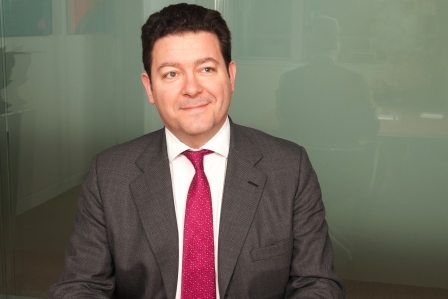Flexibility the key in a challenging private equity market
Private equity isn’t what it used to be.
Alex Cooper-Evans of Electra Partners, manager of Electra Private Equity.
 View Electra Private Equity profile page
View Electra Private Equity profile page
Our industry has been through a credit boom and bust which have left it facing portfolio company failures, some managers shutting up shop, more demanding credit markets, low deal volumes despite an overhang of uninvested capital, a sluggish fund raising environment, … the list is long. The landscape has undoubtedly changed and now success requires the flexibility to adapt in this evolving market.
Electra Private Equity PLC ("Electra") has this flexibility. It is a London Stock Exchange listed investment trust focused on private equity investments. It has three different listed securities: Ordinary Shares, Convertible Bonds and Zero Dividend Preference Shares (through its wholly owned subsidiary Electra Private Equity Investments PLC) . Its objective is to achieve a return on equity of 10-15% per year over the long-term by investing in a portfolio of private equity assets. In the 10 years to 31 March 2013, Electra's diluted NAV per share increased by 298% and its share price increased by 394%, compared to 175% for the FTSE All-Share Index.
Electra is managed on an exclusive and fully discretionary basis by Electra Partners, an independent private equity fund manager with over 30 years' experience in the mid-market.
At Electra Partners we use Electra’s flexible investment mandate and permanent capital as two key differentiators. The flexible investment mandate gives us the ability to invest across the full range of private equity related opportunities, while at the same time allowing us to react quickly to market conditions. Permanent capital means that, unlike almost all other private equity funds, our investee companies can execute strategies free from the influence of their shareholder’s fund-raising agenda. As a result, we can match our investment and exit strategies to the underlying business strategy, not the other way around. Investments like Allflex and Capital Safety Group demonstrate the benefits of this approach.
Thanks to these two differentiators, we are able to invest broadly across the private equity market, which we categorise into three areas:
Buyouts & growth capital: direct investment in good quality, well-managed businesses with the potential for profits growth. Typically we invest £40 -120 million of equity in deals of up to £300 million enterprise value, targeting companies headquartered or with management in the UK.
Secondaries: acquisitions of positions in either individual or portfolios of private equity funds; or acquisitions of portfolios of private equity-owned businesses, known as “secondary directs”.
Debt: acquisitions of performing or stretched debt instruments in the secondary market; or investments in primary debt issues.
This broad appetite has enabled us to capitalise on a key macroeconomic theme, namely banks deleveraging by divesting non-core assets. This theme has driven more than 60% of our new investments over the eighteen month period to 31 March 2013 and has manifested itself in three principal types of transaction:
First, disposals of non-core businesses, for example motor insurer esure, in which Electra has a minority stake.
Second, financial assets of all types: debt, fund interests, co-invest equity, etc. Electra’s purchase of senior debt issued by Park Resorts is a good example of this type of deal. Finally, unintentionally owned businesses. These are businesses to which banks initially lent but which they now own, as a result of underperformance or over-leverage, and are now selling in an M&A process. A good example of this would be Peverel, which we bought from administration in early 2012.
We think that the pressure on banks to improve their capital positions, which has been the central driver of our recent investment activity, will continue to create opportunities in the short and medium term. Good companies with bad balance sheets will have to refinance at some stage and will need flexible equity to fill the gap with leverage levels available in the credit markets today. Many banks have barely begun to recognise the issues in their portfolios but will need to do so soon. And economic growth, when it returns, will create financing gaps that banks will not want to fill.
Conventional mid-market MBOs, on the other hand, are currently running at around a quarter of peak levels. But this market is being fought over by a large number of MBO specialists with uninvested capital. This in turn means that deal pricing is stubbornly high. In time the supply of new capital will fall as existing funds reach the end of their investment period and as the dire fund-raising environment keeps some of our competitors out of the market.
Historically the best investment vintages have been those during or immediately following a recession. A flexible investor like Electra is ideally suited to the current market conditions, and this will continue to be the case as the competitive environment improves while bank-led deal flow continues.

